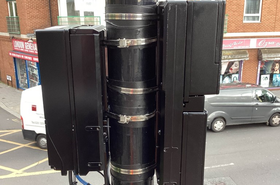The UK government has announced it will invest £100 million ($129m) to fund five new quantum research hubs in Glasgow, Edinburgh, Birmingham, Oxford, and London.
The hubs will be delivered by the UKRI (UK Research and Innovation) Engineering and Physical Sciences Research Council (EPSRC), with an additional £106 million ($136m) investment from EPSRC, the UKRI Biotechnology and Biological Research Council, UKRI Medical Research Council, and the National Institute for Health and Care Research.
In a statement, the Department for Science, Innovation, and Technology – which is responsible for the project – said that the hubs will be led by universities and oversee the development of practical uses for quantum technology in areas such as medical scanners, secure communication networks, and next-generation positioning systems.
University College London and the University of Cambridge are leading the £10.8m ($14m) UK Quantum Biomedical Sensing Research Hub which will focus on developing quantum sensors for disease diagnosis, while the University of Birmingham will spearhead the £27.5m ($35.4m) UK Quantum Technology Hub in Sensing, Imaging and Timing, looking into the development of quantum sensing for practical applications, such as brain scanners for dementia.
The three other hubs include the £31.7m ($40.8m) Integrated Quantum Networks Quantum Technology Hub, led by Edinburgh research university Heriot-Watt to develop ‘quantum internet’ technologies; The University of Oxford’s £22.4m ($28.9m) Hub for Quantum Computing via Integrated and Interconnected Implementations that will focus on technologies for building quantum computers; and the £21.9m ($28.3m) UK Hub for Quantum Enabled Position, Navigation, and Timing which will be led by the University of Glasgow to create quantum-based positioning and navigation systems for critical infrastructure.
“We want to see a future where cutting-edge science improves everyday lives. That is the vision behind our investment in these new quantum technology hubs, by supporting the deployment of technology that will mean faster diagnoses for diseases, critical infrastructure safe from hostile threats, and cleaner energy for us all,” said Secretary of State for Science, Innovation and Technology, Peter Kyle.
He added: “This isn’t just about research; it’s about putting that research to work. These hubs will bridge the gap between brilliant ideas and practical solutions. They will not only transform sectors like healthcare and security, but also create a culture of accelerated innovation that helps to grow our economy.”
The £100 million in funding pledged by the new Labour government is more than double what the previous Conservative administration had earmarked for the UK’s quantum sector.
In February 2024, four months before the general election, the Conservative party announced a £45m ($57m) funding package for quantum projects, including the development and delivery of seven quantum computing testbeds.
DSIT confirmed to DCD that the previously announced quantum testbeds project will be going ahead as planned.







